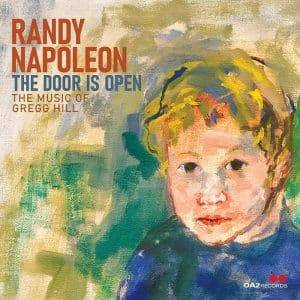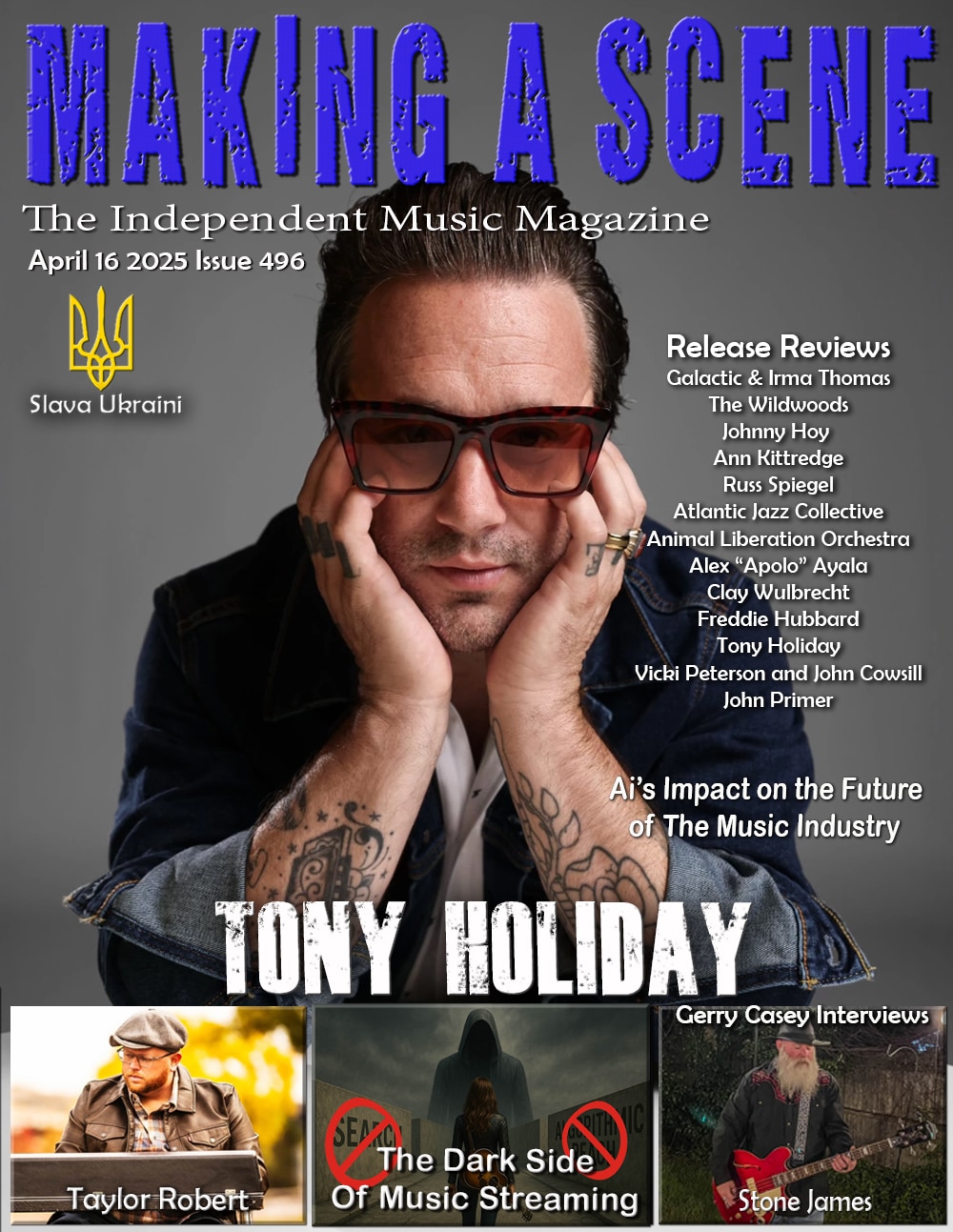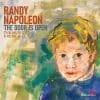Randy Napoleon The Door Is Open: The Music of Gregg Hill
 Randy Napoleon
Randy Napoleon
The Door Is Open: The Music of Gregg Hill
OA2
Make this the fifth album bearing the subtitle, “The Music of Gregg Hill” in the past four years. Again, it’s the jazz musicians from the fertile Michigan State University Jazz program and specifically guitarist Randy Napoleon who now presents The Door Is Open. This follows his 2022 Hill-associated release Puppets. Fellow educator and frequent bandmate, as he is here, bassist Rodney Whitaker, issued 2021’s Outrospection and 2023’s Oasis. Trombonist Michael Dease also released the excellent The Other Shoe in 2023. There are several others prior to 2021 but this is the third on these pages. This endless well of Hill’s music will likely continue well into the future but for now we focus on the nine compositions of this album, all composed by Hill and arranged by Napoleon.
Before proceeding, a little capsule summary on Hill is in order. Hill is a Michigan based composer who plays both saxophone and piano and has dabbled in several careers from being a professional long haul truck driver to the CFO of a major tech company. As you can glean, just from that one sentence, his imagination and adventurous spirit is boundless.
This is Napoleon’s second recording with the core group of pianist Rick Roe, bassist Whitaker, drummer Quincy Davis, and vocalist Aubrey Johnson. Napoleon and Whitaker draw on several of their MSU students and faculty to help round out the ensemble, with bassist Lucas LaFave sharing duties with Whitaker, appearing on four tracks as compared to Whitaker’s five. The three horns that grace five tracks are comprised of two faculty members – trumpeter Anthony Stanco, tenorist Walter Blanding, and upon the recommendation of Michael Dease, student trombonist Andrew Kim.
Opening “The Lost Tune” is a mellow flowing ballad featuring Napoleon’s tasty guitar framing the smooth vocals of Johnson. The next three tracks feature the three horns with Whitaker holding down the bass line in the title track and “Escape to Cat Island.” On the former we hear a lusty solo from veteran tenor Blanding over Roe’s steady comping. He yields to a lyrical turn from the expressive Napoleon who craftly builds his statement with an accent on the blues before the full ensemble takes it home to a roaring climax. “Escape to Cat Island” features impressive kit work from Davis and an infectious head that first yields to the leader spraying both single notes and block chords before surrendering to the feisty trumpet of Stanco. The full ensemble renders several variations on the theme, making way for Davis on the eights. One can hear the influence of Wayne Shorter and Miles in this composition and several of the others. LaFave lays down the bassline for the minor blues of “Motel Blues” as Johnson returns to the mic, this time with the support of the horns and sharp guitar lines from Napoleon, clearly a blues influenced player, cut in the mold of fellow Michigander Grant Green. LaFave shows his chops, going arco here in an unexpected emphatic statement.
The next three tracks are rendered sans horns, the soaring mid-tempo ballad “Spa -Tenity” bearing similarity to the opener with Johnson’s vocal. Napoleon opts for a gentle Jim Hall-like resonating single note attack in the gorgeous “April Song” with Johnson’s enchanting vocals adding another dreamy layer while the rhythm section plays with delicate restraint, marked by Davis’s sweeping zephyrs of cymbals. Roe and Whitaker each play ever so elegantly in their statements, helping to stamp this track a clear standout. Simply by its title “The Last Pop Tune,” brings curiosity. It moves along nicely with its uplifting melody and nimble turns from Napoleon and Roe but falls short of the allure of the prior piece.
“Skyline” shifts between the dreamy soundscapes that feature Johnson and galloping sequences from the horns, as if to harness two key attributes of Hill’s writing in one single piece, with Kim and Roe each stepping forward with animated turns. The closing “Triple Play” is a hook-filled blues, akin to a NOLA Brass band in slow tempo punctuated the lines of Napoleon and Roe. The beauty here is the simplicity of the stomping vibe.
Hill’s music never ceases to be enthralling and Napoleon again proves to be one of today’s most expressive jazz guitarists.
- Jim Hynes
BUY NOW!
Buy Us a Cup of Coffee!
Join the movement in supporting Making a Scene, the premier independent resource for both emerging musicians and the dedicated fans who champion them.
We showcase this vibrant community that celebrates the raw talent and creative spirit driving the music industry forward. From insightful articles and in-depth interviews to exclusive content and insider tips, Making a Scene empowers artists to thrive and fans to discover their next favorite sound.
Together, let’s amplify the voices of independent musicians and forge unforgettable connections through the power of music
Make a one-time donation
Make a monthly donation
Make a yearly donation
Buy us a cup of Coffee!
Or enter a custom amount
Your contribution is appreciated.
Your contribution is appreciated.
Your contribution is appreciated.
DonateDonate monthlyDonate yearlyYou can donate directly through Paypal!
Subscribe to Our Newsletter
Discover more from Making A Scene!
Subscribe to get the latest posts sent to your email.















































